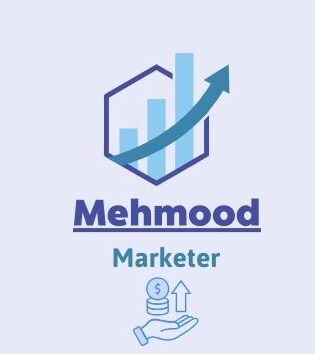Why Affiliate Marketing Is Necessary for Business
🚀 Introduction
If you’re running a business and not tapping into affiliate marketing, you’re leaving money on the table—plain and simple. In a world where consumers are skeptical of traditional ads and where budgets are tighter than ever, affiliate marketing emerges as the unsung hero of digital marketing. But what exactly is affiliate marketing, and why is it such a game-changer?

💡 Understanding Affiliate Marketing
The Basic Mechanism Behind Affiliate Marketing
At its core, affiliate marketing is a performance-based partnership between a business and third-party promoters (aka affiliates). Affiliates earn a commission for each sale, lead, or action generated through their unique referral links. No sale? No payment. Simple as that.
Types of Affiliate Programs
- Pay-Per-Sale (PPS)
- Pay-Per-Click (PPC)
- Pay-Per-Lead (PPL)
Each model caters to different business objectives, offering flexibility based on desired outcomes.
Key Players Involved
- Merchant (You) – The business selling a product/service.
- Affiliate (Promoter) – The one promoting your offer.
- Consumer – The person buying your product.
- Affiliate Network – Sometimes mediates the transaction and handles tracking and payments.
📈 Why Businesses Need Affiliate Marketing
Cost-Effective Marketing Strategy
Instead of burning cash on ads that may or may not convert, affiliate marketing ensures you pay only for results. No more playing roulette with your ad spend.
Expands Reach Without Expanding Budget
Affiliates are your unofficial marketing army. Whether they’re bloggers, YouTubers, or niche influencers, they already have the audience you’re trying to reach. You get instant access to that audience without the cost of building it yourself.
Results-Driven Approach (Pay for Performance)
You’re not paying for potential—you’re paying for actual conversions. This lowers risk and maximizes ROI.
📢 Boosts Brand Awareness and Trust
Influence of Affiliates on Consumer Trust
People trust people more than they trust brands. When an influencer vouches for your product, it feels more authentic than a banner ad.
Building Brand Authority Through Influencers
By partnering with trusted voices in your industry, you can piggyback off their credibility. That means faster trust-building with less effort.
🚦 Drives More Traffic and Quality Leads
Leveraging Affiliate Networks for Targeted Traffic
Affiliates often specialize in specific niches. That means they attract highly targeted traffic—the kind that’s more likely to convert.
Higher Conversion Rates Through Relevance
Because affiliates cater to a particular audience, their promotions are often more relevant and better timed, leading to higher conversion rates.
📊 Scalability and Flexibility
Easy to Scale with Minimal Investment
Unlike traditional advertising that requires bigger budgets as you scale, affiliate marketing allows you to scale up profitably without blowing your budget.
Flexibility in Strategy and Promotion Channels
You can test different strategies—email, blogs, social media—through affiliates, and quickly adapt based on what’s working.
🆚 Affiliate Marketing vs Traditional Marketing
ROI Comparison
Traditional ads are expensive and uncertain. Affiliate marketing delivers a better bang for your buck, especially for startups and SMEs.
Budget Allocation Differences
With affiliate marketing, you’re investing after the sale. With traditional marketing, you’re betting on the hope of returns.
Adaptability to Digital Trends
Affiliate marketing evolves with the digital landscape. Whether it’s TikTok, Instagram Reels, or AI-driven content, affiliates are already there, ahead of the curve.
🏆 Real-World Examples of Success
Amazon Associates
The OG of affiliate programs. Amazon owes a chunk of its traffic and sales to affiliates who trust the platform’s massive reach and trustworthiness.
Shopify & SaaS Companies
These companies reward referrals handsomely and benefit from loyal promoters who provide recurring business.
Niche Blogs and Content Creators
From beauty bloggers to gaming YouTubers, niche content creators thrive on affiliate income—and businesses thrive on their influence.
🧯 Common Myths About Affiliate Marketing
“It’s Passive Income Only”
It’s not a get-rich-quick scheme. Successful affiliates and businesses put in consistent effort, strategy, and testing.
“Only for Influencers or Bloggers”
False. Anyone with an audience—or even a unique way to reach people—can become an affiliate.
⚙️ Setting Up a Successful Affiliate Program
Choosing the Right Platform
Look into platforms like:
- ShareASale
- CJ Affiliate
- Rakuten
- Tapfiliate
Choose based on your industry and budget.
Recruiting Quality Affiliates
Go for quality over quantity. Target affiliates with engaged, relevant audiences—even if small.
Tracking Tools and Performance Metrics
Use UTM codes, dashboards, and affiliate software to monitor performance. Transparency and tracking = long-term trust.
🔍 SEO and Content Integration
How Content Marketing Powers Affiliate Growth
Well-placed affiliate links in high-quality content = organic traffic and evergreen revenue.
SEO Best Practices for Affiliate Success
- Use long-tail keywords
- Optimize for user intent
- Maintain quality and relevance
⚖️ Legal and Ethical Considerations
Disclosure Requirements
Affiliates MUST disclose paid partnerships. Transparency builds trust.
FTC Compliance
Follow guidelines to avoid legal issues. Non-compliance = penalties for both affiliate and business.
🚀 Affiliate Marketing in 2025 and Beyond
Trends Shaping the Future
- Micro-influencers will dominate.
- AI will personalize affiliate content.
- Voice search and affiliate integration are on the rise.
AI, Influencers, and Micro-Niche Targeting
Smaller, engaged audiences are proving to be more profitable than broad reach campaigns.
🎯 Conclusion
Affiliate marketing isn’t just an option anymore—it’s a necessity. It’s the most efficient, scalable, and trust-driven way to grow your business in today’s digital age. Whether you’re a startup, an eCommerce store, or a SaaS brand, ignoring affiliate marketing is like leaving your store open but turning off the lights. Why do that?
❓FAQs
1. What kind of business should use affiliate marketing?
Almost every business—especially eCommerce, SaaS, and digital products—can benefit from affiliate marketing.
2. How much does it cost to start affiliate marketing?
You can start for almost free—only pay commissions after a sale.
3. Can small businesses benefit from affiliate marketing?
Absolutely. It’s perfect for small businesses with limited marketing budgets.
4. What are the best affiliate marketing platforms?
Some of the best include ShareASale, CJ Affiliate, Rakuten, Impact, and Tapfiliate.
5. How long does it take to see results from affiliate marketing?
With the right affiliates, you can start seeing results in as little as a few weeks—but consistency is key.

